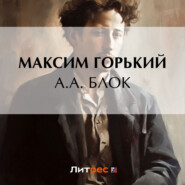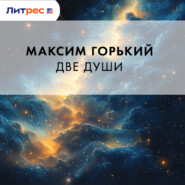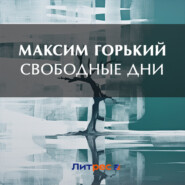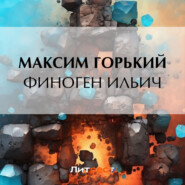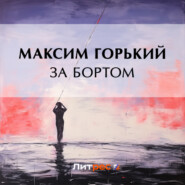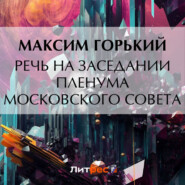По всем вопросам обращайтесь на: info@litportal.ru
(©) 2003-2025.
✖
Mother
Настройки чтения
Размер шрифта
Высота строк
Поля
Marya Korsunova, in a chat with the mother, reflected the opinion of the police, with whom she associated as amicably as with everybody:
"How is it possible to find the guilty man? That morning some hundred people met Isay, and ninety of them, if not more, might have given him the blow. During these eight years he has galled everybody."
The Little Russian changed considerably. His face became hollow-cheeked; his eyelids got heavy and drooped over his round eyes, half covering them. His smiles were wrung from him unwillingly, and two thin wrinkles were drawn from his nostrils to the corners of his lips. He talked less about everyday matters; on the other hand, he was more frequently enkindled with a passionate fire; and he intoxicated his listeners with his ecstatic words about the future, about the bright, beautiful holiday, when they would celebrate the triumph of freedom and reason. Listening to his words, the mother felt that he had gone further than anybody else toward the great, glorious day, and that he saw the joys of that future more vividly than the rest. When the investigations of Isay's murder ceased, he said in disgust and smiling sadly:
"It's not only the people they treat like trash, but even the very men whom they set on the people like dogs. They have no concern for their faithful Judases, they care only for their shekels – only for them." And after a sullen silence, he added: "And I pity that man the more I think of him. I didn't intend to kill him – didn't want to!"
"Enough, Andrey," said Pavel severely.
"You happened to knock against something rotten, and it fell to pieces," added the mother in a low voice.
"You're right – but that's no consolation."
He often spoke in this way. In his mouth the words assumed a peculiar, universal significance, bitter and corrosive.
At last, it was the first of May! The whistle shrilled as usual, powerful and peremptory. The mother, who hadn't slept a minute during the night, jumped out of bed, made a fire in the samovar, which had been prepared the evening before, and was about, as always, to knock at the door of her son's and Andrey's room, when, with a wave of her hand she recollected the day, and went to seat herself at the window, leaning her cheek on her hand.
Clusters of light clouds, white and rosy, sailed swiftly across the pale blue sky, like huge birds frightened by the piercing shriek of the escaping steam. The mother watched the clouds, absorbed in herself. Her head was heavy, her eyes dry and inflamed from the sleepless night. A strange calm possessed her breast, her heart was beating evenly, and her mind dwelt on only common, everyday things.
"I prepared the samovar too early; it will boil away. Let them sleep longer to-day; they've worn themselves out, both of them."
A cheerful ray of sun looked into the room. She held her hand out to it, and with the other gently patted the bright young beam, smiling kindly and thoughtfully. Then she rose, removed the pipe from the samovar, trying not to make a noise, washed herself, and began to pray, crossing herself piously, and noiselessly moving her lips. Her face was radiant, and her right eyebrow kept rising gradually and suddenly dropping.
The second whistle blew more softly with less assurance, a tremor in its thick and mellow sound. It seemed to the mother that the whistle lasted longer to-day than ever. The clear, musical voice of the Little Russian sounded in the room:
"Pavel, do you hear? They're calling."
The mother heard the patter of bare feet on the floor and some one yawn with gusto.
"The samovar is ready," she cried.
"We're getting up," Pavel answered merrily.
"The sun is rising," said the Little Russian. "The clouds are racing; they're out of place to-day." He went into the kitchen all disheveled but jolly after his sleep. "Good morning, mother dear; how did you sleep?"
The mother went to him and whispered:
"Andriusha, keep close to him."
"Certainly. As long as it depends on us, we'll always stick to each other, you may be sure."
"What's that whispering about?" Pavel asked.
"Nothing. She told me to wash myself better, so the girls will look at me," replied the Little Russian, going out on the porch to wash himself.
"'Rise up, awake, you workingmen,'" Pavel sang softly.
As the day grew, the clouds dispersed, chased by the wind. The mother got the dishes ready for the tea, shaking her head over the thought of how strange it was for both of them to be joking and smiling all the time on this morning, when who knew what would befall them in the afternoon. Yet, curiously enough, she felt herself calm, almost happy.
They sat a long time over the tea to while away the hours of expectation. Pavel, as was his wont, slowly and scrupulously mixed the sugar in the glass with his spoon, and accurately salted his favorite crust from the end of the loaf. The Little Russian moved his feet under the table – he never could at once settle his feet comfortably – and looked at the rays of sunlight playing on the wall and ceiling.
"When I was a youngster of ten years," he recounted, "I wanted to catch the sun in a glass. So I took the glass, stole to the wall, and bang! I cut my hand and got a licking to boot. After the licking I went out in the yard and saw the sun in a puddle. So I started to trample the mud with my feet. I covered myself with mud, and got another drubbing. What was I to do? I screamed to the sun: 'It doesn't hurt me, you red devil; it doesn't hurt me!' and stuck out my tongue at him. And I felt comforted."
"Why did the sun seem red to you?" Pavel asked, laughing.
"There was a blacksmith opposite our house, with fine red cheeks, and a huge red beard. I thought the sun resembled him."
The mother lost patience and said:
"You'd better talk about your arrangements for the procession."
"Everything's been arranged," said Pavel.
"No use talking of things once decided upon. It only confuses the mind," the Little Russian added. "If we are all arrested, Nikolay Ivanovich will come and tell you what to do. He will help you in every way."
"All right," said the mother with a heavy sigh.
"Let's go out," said Pavel dreamily.
"No, rather stay indoors," replied Andrey. "No need to annoy the eyes of the police so often. They know you well enough."
Fedya Mazin came running in, all aglow, with red spots on his cheeks, quivering with youthful joy. His animation dispelled the tedium of expectation for them.
"It's begun!" he reported. "The people are all out on the street, their faces sharp as the edge of an ax. Vyesovshchikov, the Gusevs, and Samoylov have been standing at the factory gates all the time, and have been making speeches. Most of the people went back from the factory, and returned home. Let's go! It's just time! It's ten o'clock already."
"I'm going!" said Pavel decidedly.
"You'll see," Fedya assured them, "the whole factory will rise up after dinner."
And he hurried away, followed by the quiet words of the mother:
"Burning like a wax candle in the wind."
She rose and went into the kitchen to dress.
"Where are you going, mother?"
"With you," she said.
Andrey looked at Pavel pulling his mustache. Pavel arranged his hair with a quick gesture, and went to his mother.
"Mother, I will not tell you anything; and don't you tell me anything, either. Right, mother?"
"All right, all right! God bless you!" she murmured.
When she went out and heard the holiday hum of the people's voices – an anxious and expectant hum – when she saw everywhere, at the gates and windows, crowds of people staring at Andrey and her son, a blur quivered before her eyes, changes from a transparent green to a muddy gray.
People greeted them – there was something peculiar in their greetings. She caught whispered, broken remarks:












